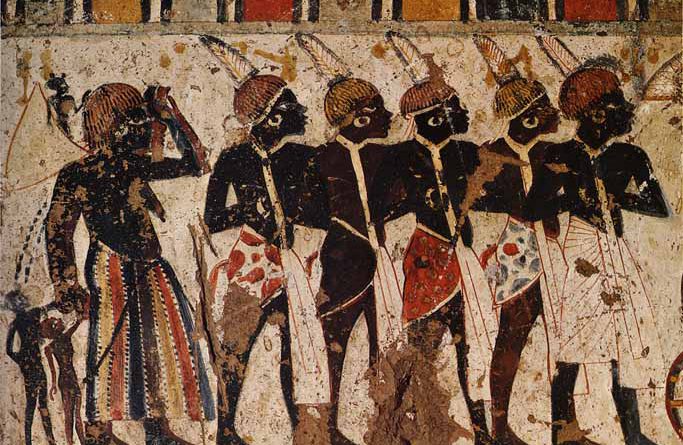This piece forms part of the content of a personal journal (my ravings) which I have kept since I was 14.
I never had the benefit of being raised amongst my tribesmen. My parents, like the millions of other African people before them, left their ancestral home in search of better opportunities in the ‘more developed world’.
It is for this reason that at the time of my birth, I was with my immediate family but I was away from my people. This was soon to remedied; as a few years later in pursuit of the traditional African setup, my mother had decided to return to Uganda to raise her family as it was meant to be…in the African way.
However, like my parents and their parents before them, I found myself living in an era where our ‘history’ was handed to us in textbooks and taught in class. I accepted what I was taught, but it was quite obvious that there were gaps in the story.
At age 9, as part of the school syllabus, I was introduced to Ugandan history. I paid close attention to the history of the Bantu peoples and learnt of their migration into the territory now known as Uganda around 1000 A.D; and continued migration South and Eastwards. This was interesting but it wasn’t what I really wanted to know.
A few lessons later, the history of my people; the Luos (Nilotic people) was explained. History teaches us that for various reasons the Luo had migrated from their ancestral home in present-day Sudan into Uganda. This migration had started around 1000AD, with the last groups of the migrants the Jopadhola (one half of my heritage and the Jaluo (Kenyan Luo) reaching the areas they currently occupy around 1500A.D.
I was quite excited to learn about this part of my heritage in school. It made me feel validated. However, I was quite dissatisfied by the textbook accounts of what is actually my family history. Amongst several other things, I did not understand why as a Luo man I was being taught that my ancestral homeland was called Bahr El Ghazel.
You see, names are very important. Even as a child I understood that for the name of my ancestral home to be known by an Arabic expression, but me not being Arabic, means very simply that we were dominated and ‘ran outta town’. I was further dissatisfied by the fact that the history of ‘my family’ started at the point where we started to migrate.
This disappointment, fuelled by my curiosity to learn more about my ancestors set me on a journey of self-discovery and research. I had to know who we were, who I was, before woe became us all.
If you ask Ugandan primary school-going children the cause of the Luo migration, you will hear a heavily rehearsed regurgitation of the Gipir killed Labongo story, (eerily similar to the Cain killed Abel narrative). This conflict was aptly named the conflict over the bead and the spear. A story for another day.
After years of doing research, I am getting closer to the answer which I have sought to answer my whole life. The most important thing we all need to realise in relation to African history is that the names of people and places, their modern-day geographical boundaries and even their belief systems are not what they were 1000 years ago and further back. As the saying goes, the Victor gets the spoils, it is imperative that we understand that in order to dominate a people they must be removed/separated from their cultural identity (language, way of life).
This is the reason why my first name is Frederick and I was raised Christian. Were I to tell my dear old last living grandparent (Esther) that the son of Beatrice no longer eats up Christianity ‘as my daily bread’, it would bring upon her sorrow untold.
However, with the benefit of everything I have come to know throughout my life, it would be counter-intuitive for me to believe in all the tenets of Christianity for a myriad of reasons. The KJV of the Bible is a translation from the Latin compilations which were made by the Romans; who in turn translated them from Greek; which was in turn translated from Aramaic/Hebrew. Ever played broken telephone?
It would be a mistake for anyone to seek an understanding of African people based on currently defined geographical boundaries. These boundaries were defined by the different waves of conquerors throughout the ages and they are not an accurate representation of the territories occupied by these peoples during ancient times.
In fact, more often than not the new boundaries have had the effect of breaking up of old cultures and the formation of new ones. Some examples are the present day nation of Nigeria. The people from the South East (Igbo) and the South West (Yoruba) are quite distinct from the people of the North (Fulani/Hausa).
However, a colonial administrator by the name of Frederick Lugard (who during his early career was also involved in bringing East Africa under British control) made the suggestion to unite these peoples and form the state of Nigeria around 1914. Why, you ask? The Northern protectorate was operating at a loss and the easiest way to address this issue was to merge it with the more prosperous South. If you want to know how well this worked out, please do research about the Nigerian Civil War/Biafran War.
A further example is South Africa. Around 1910, the Union of South Africa Act led to the formation of present-day South Africa. Again, the British were heavily involved in this, albeit from a distance.
Although the consolidation of the different homelands to form one unified state, did not result in a South African civil war as it did in Nigeria; (the South African civil war had been fought prior and it was majorly a conflict between the British and the Dutch) historians attribute the unification of South Africa to be part of the groundwork which laid the foundation for the later promulgation of ‘apartheid policies’.
You see, following the discovery of Gold and diamond in the latter part of the 1800s, the English became more aggressive about ‘securing’ present-day South Africa; as one administrative territory.
The English were not the first to use physical proximity as a condition for the consolidation of several territories into one, notwithstanding cultural differences. African history is rife with examples of this. It is less of an English tactic and more of a conqueror’s one.
The reason why it has been more severe in Africa is based on 2 reasons in my opinion. It has happened so often that our people have not had the benefit of a long sustained, peace which is integral for the development of any culture; and secondly, it has placed us in a perpetual state of survival that has caused us to abandon what isn’t most important for our immediate sustenance. I believe it is for these reasons that most African people do not know the full extent of our culture, history; and we have forgotten who we are.
However, the world is quite aware of who we are. You see, the ancient Sudan I speak of, referred to as Nubia in the Bible was the seat of the most successful empire the world has ever known. Some texts refer to this area as Nubia/Ethiopia.
These names are often used interchangeably to refer to the regions that cover modern day Sudan, South Sudan, and parts of Ethiopia. It is now becoming more and more apparent that the Egyptians of old were in fact Nubian people (research King Piye of the 25th dynasty). This is very important. It is, therefore, no surprise that some of the oldest remains of our early ancestors have been found in the Omo valley of present-day Ethiopia; an area which I suspect was part of ancient Nubia/Egypt.
Allow me create a time-line for those of us who have wandered off. The earth is about 4.5 billion years old. The oldest ancestors of modern-day humans evolved around 200,000 years ago. The academic community isn’t ad idem on where the first civilization actually started, with some experts stating that it was actually the Mesopotamians who came to the fore around 3000 to 5000 years ago; while others explain that it was actually ancient Egypt which was the first civilisation formed around the same time. These 2 accounts say the same thing to me. It tells me that where environmental conditions support food production, people will settle, farm and build communities.
Due to the effects of climate change and the resultant expansion of the Sahara a large portion of the Nile Valley today exists in a semi-arid region. This has not always been the case. 5000 years ago, at the dawn of the Egyptian civilisation, this area was lush and fertile. This was further supplemented by the occasional flooding of the Nile which nourished adjacent regions and allowed the people to learn how to farm and go on to create the civilisation I am now referring to.
However, as far as human nature goes, other peoples wanted a piece of this prosperity. To that end Africa (Alkebulan) was attacked, our history stolen or rewritten; and its people forced to migrate to other regions. I have skipped a lot of detail. I have to have to consider the shortcomings of those amongst us that consider reading to be a chore.
Why is all this relevant to where we find ourselves today, as a people? The 21st century African Renaissance can only reach its fruition (yes it has started) when we understand and accept that for the most part, we have forgotten who we are.
The consistent persecution of black people, our murder, degradation and all the other acts incidental thereto must be seen as a sustained effort to prevent us from taking our position as the Kings of old. Don’t be angry, I was angry. It doesn’t help. Seek wisdom, seek knowledge, and seek love. As a keen history scholar, the solace I can offer to us all is the fact that our condition is temporary. If the most ancient of civilisations are a little over 5000 years old, and the earth is 4 billion years old, take heart in being 3 goals down at half time. That trophy is coming back home, ‘we goin’ be ayt’…..
This post was created with our nice and easy submission form. Create your post!





